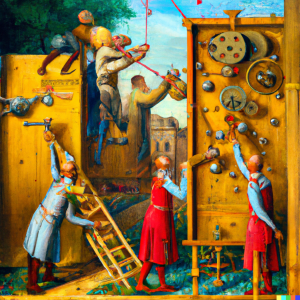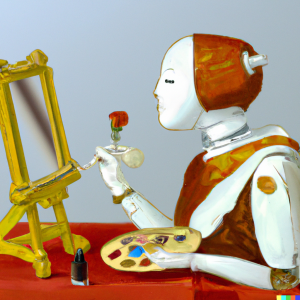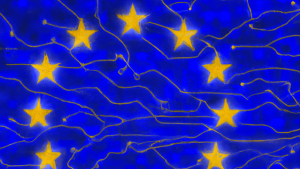Webinars: AI Inputs, Outputs and the Public Commons
mardi 1 novembre 2022 à 00:36
Artificial intelligence (AI) has been exploding across the digital landscape — from people sharing text and images generated by AI platforms, to new policy that tries to shape a future where AI is expected to play an even bigger role — all while we aren’t really sure yet even how to define AI, much less understand all the impact it will have.
Here at CC, we’ve been thinking about what AI means for the commons we support, both in our strategy for better sharing and for our collaboration for a better internet. Are all these new works generated by AI part of the open, public commons? Should they be? If someone does hold copyright for an AI work, who is it? The technologists who created the AI tool? The person who uses AI to generate a work? The countless creators whose works trained the AI? The machine itself? Or should works generated by AI live in the public domain, as they do in many interpretations of established law?
Going beyond AI’s outputs: How do and should human works participate in training AI? Currently, AI platforms are using untold amounts of existing content to train their systems. Not every creator welcomes their work being used in AI, especially when AI is put to life-changing uses that could amplify biases, like predictive policing, facial recognition, job recruiting, insurance claims, or loan approvals. At the same time, if AI inputs are limited, AI could be based on a more narrow view of the world that could also perpetuate biases and block insights. How can we best ensure AI is trained to support creators and good outcomes?
As we form our positions at CC, we are bringing together people with diverse perspectives to participate in broad discussions about how AI intersects with open sharing in a commons that serves the public interest.
How does the proliferation of AI connect to better sharing: sharing that is inclusive, just and equitable — where everyone has wide opportunity to access content, to contribute their own creativity, and to receive recognition and rewards for their contributions? How does the proliferation of AI connect to a better internet: a public interest vision for an internet that benefits us all?
Join us to engage in this discussion at two free, public webinars: one focused on how open works and better sharing intersect with AI inputs — works used in training and supplying AI — and another focused on how open works and better sharing intersect with AI outputs — works generated by AI that are, could be, or should be participating in the open commons.
Webinars
AI Inputs and the Public Commons: 5–6pm UTC Wednesday 9 November 2022

(check the time in your local timezone)
Join us for a free, public webinar on how open works and better sharing intersect with AI inputs — works used in training and supplying AI — with panelists:
- Abeba Birhane, Senior Fellow in Trustworthy AI, Mozilla Foundation
- Alek Tarkowski, Co-Founder and Director of Strategy, Open Future Foundation
- Anna Bethke, Principal Data Scientist, Salesforce
- Florence Chee, Associate Professor, School of Communication, Director, Center for Digital Ethics and Policy, and Director, SIMLab, Loyola University Chicago
- Moderator: Stephen Wolfson, Associate Director for Research and Copyright Services, School of Law, University of Georgia
Register now to join the webinar live. Can’t join live? Register anyway to hear when the recording is available.
AI Outputs and the Public Commons: 4–5pm UTC Thursday 10 November 2022

(check the time in your local timezone)
Join us for a free, public webinar on how open works and better sharing intersect with AI outputs — works generated by AI that are, could be, or should be participating in the open commons — with panelists:
- Amanda Levendowski, Associate Professor of Law and Director, Intellectual Property and Information Policy Clinic, Georgetown University
- Daniel Ambrosi, Artist
- Mark Riedl, Professor, School of Interactive Computing and Associate Director, Machine Learning Center, Georgia Institute of Technology
- Meera Nair, Copyright Specialist, Northern Alberta Institute of Technology
- Moderator: Kat Walsh, General Counsel, Creative Commons
Register now to join the webinar live. Can’t join live? Register anyway to hear when the recording is available.
The post Webinars: AI Inputs, Outputs and the Public Commons appeared first on Creative Commons.
 This week, the international community celebrates
This week, the international community celebrates 

